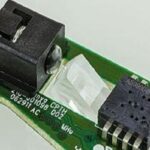- Course No.: E – 1646
- PDH Units: 8
No data found for Custom Course Number
No data found for Custom Course Units
- Course No.: E – 1646
- PDH Units: 8
Intended Audience: Electrical and general engineers
PDH UNITS: 8
In Introduction to Motor Starting Analysis course, you'll learn...
- Basic theory behind Motor Starting Analyses
- How starting and stopping large motors can affect industrial system performance
- Motor starting techniques
- Commercial software modelling techniques, simulation performance and interpretation of the results
- Need for motor starting studies
- Motor starting techniques
- Types of studies
- Data requirements
- Motor modelling for the purpose of power system studies
- Solution procedures and examples
Once completed, your order and certificate of completion will be available in your profile when you’re logged in to the site.
Ethics Courses
Course No.: E - 1646
PDH Units: 8









